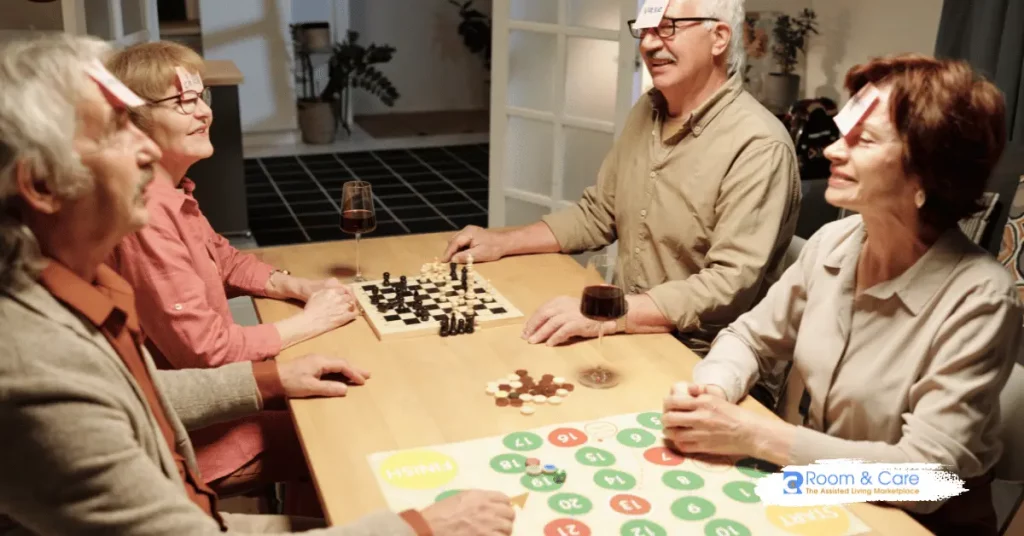

Decision-making is a vital skill for navigating the complexities of life. For adults, refining this ability can lead to better personal choices, stronger professional outcomes, and improved relationships. Whether it involves selecting a career path, managing finances, or finding the right care options for loved ones, decision-making plays a central role in shaping outcomes. This comprehensive guide explores engaging decision-making activities for adults, practical advice, and important considerations to enhance this essential skill.
Every decision, big or small, impacts our lives and the lives of those around us. Studies have shown that individuals who actively develop their decision-making abilities tend to be more confident, adaptable, and successful. Activities that encourage critical thinking, problem-solving, and collaboration not only sharpen the mind but also empower individuals to approach challenges with clarity and purpose.
Enhanced Problem-Solving: Regular practice helps in identifying effective solutions quickly.
Increased Confidence: Making informed decisions boosts self-assurance.
Stronger Relationships: Improved choices lead to healthier interactions and better understanding.
Reduced Stress: Clear decision-making minimizes uncertainty and anxiety.
Here are some effective and engaging activities designed to improve decision-making skills for adults:
Simulating real-life situations allows adults to explore different perspectives and practice empathetic decision-making. Whether it’s resolving workplace conflicts or navigating family dynamics, this activity enhances analytical skills.
Implementation: Create scenarios with dilemmas and assign roles to participants.
Outcome: Encourages critical thinking, negotiation, and empathy.
This timeless activity is a simple yet effective way to weigh the advantages and disadvantages of any decision.
Implementation: Write down all potential benefits and drawbacks of a decision.
Outcome: Promotes a balanced and structured approach to choices.
Team-based exercises, such as planning events or solving hypothetical problems, encourage collaboration and consensus-building.
Implementation: Present a scenario and ask participants to work together to find a solution.
Outcome: Builds teamwork, communication, and compromise skills.
A decision matrix helps individuals compare multiple options objectively by assigning weights to different factors.
Implementation: List options, criteria, and scores to evaluate the best course of action.
Outcome: Strengthens logical reasoning and prioritization skills.
Puzzles, escape rooms, and strategy-based board games require quick thinking and adaptability, improving decision-making under pressure.
Implementation: Engage in activities that involve solving puzzles or navigating complex challenges.
Outcome: Develops strategic thinking and adaptability.

When making decisions, especially those involving significant life aspects, several factors need to be considered.
Each decision comes with its unique context. For instance, choosing elder care options requires an understanding of health needs, family preferences, and financial constraints.
While short-term solutions may seem appealing, it’s crucial to assess the long-term effects of any decision to ensure sustainability.
Consulting professionals or trusted advisors can provide valuable insights, particularly for complex decisions like financial planning or selecting elder care facilities.
Decisions about senior care are among the most impactful choices adults face. Balancing emotional, financial, and practical considerations is essential in this context.
Adult family homes provide personalized care in a residential setting, making them an excellent option for seniors seeking a home-like environment. These homes offer a unique and comforting atmosphere where residents can form meaningful connections with caregivers and peers. This emphasis on community and care makes them an appealing choice for families prioritizing emotional well-being in their decision-making process.
Factors to Consider:
Caregiver-to-resident ratio
Proximity to family members
Cost and services included
Reviews and recommendations
For seniors with cognitive impairments like Alzheimer’s or dementia, memory care facilities offer specialized services tailored to their needs. These facilities focus on creating safe and supportive environments with activities that promote cognitive engagement and emotional well-being. Families often consider such facilities for their ability to provide both expert care and enriching experiences, which play a critical role in making informed decisions.
Factors to Consider:
Staff qualifications and training
Safety measures
Activities designed to enhance memory and engagement
Transparency in pricing
Finding the right care option can be overwhelming. Room and Care simplifies this process by connecting families directly to top facilities, including adult family homes and memory care centers, without referral fees or intermediaries. This approach ensures affordability and straightforward access to quality care.
Break Decisions into Steps: Simplify the process by dividing it into manageable phases.
Stay Informed: Research thoroughly and keep updated on relevant trends.
Embrace Flexibility: Be willing to revisit and adjust decisions as circumstances evolve.
Practice Regularly: Engage in activities or scenarios that challenge your decision-making abilities.

1. How can I improve my decision-making skills? Practice regularly through structured activities, seek feedback, and consult reliable resources for informed decisions.
2. What should I do if I feel overwhelmed by a decision? Break it into smaller steps, prioritize tasks, and focus on the most critical aspects.
3. How do I handle regret over a decision? Learn from the experience by reflecting on what worked and what didn’t, and apply those lessons moving forward.
Decision-making is an invaluable skill that can be nurtured through practice, reflection, and structured activities. Whether it’s making daily choices or addressing major life decisions, the strategies outlined here can empower adults to approach challenges with clarity and confidence. For those navigating complex choices, such as finding the right care for loved ones, platforms like Room and Care provide direct access to high-quality facilities without unnecessary fees or intermediaries.
By implementing these tips and engaging in decision-making activities, you can build the confidence and skills needed to make informed and impactful decisions. Start today and take the first step toward mastering this essential life skill.